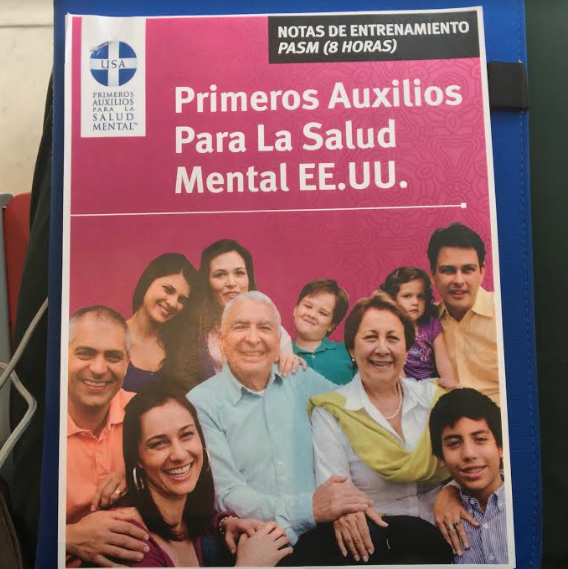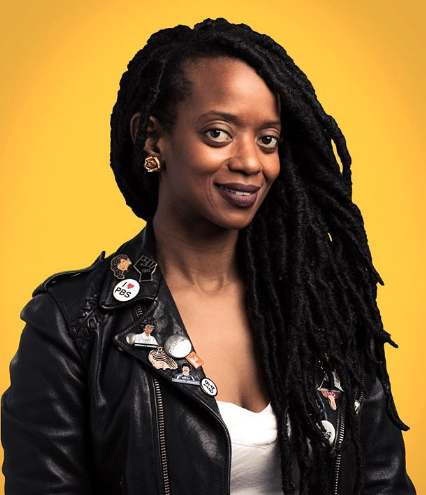When life gets unjiggy, having an unbiased, noncoddling professional with whom you can bust your emotions open and make sense of life in this wretched post-Teen Summit society can be an invaluable asset. Even if you’re “feeling okay” and don’t need help navigating a rough patch, accepting yourself, reframing self-defeating thoughts/behaviors, or overcoming trauma, there’s nothing wrong with having a mental health practitioner on your squad to help you feel a bit more spiritually moisturized. Someone you don’t have to impress or censor yourself with.
Because while venting is cool, your well intentioned friends, Twitter community, and boothang aren’t always equipped to do the necessary labor to help you deep clean your mental and emotional dancerie. And that’s okay. While you wait for Iyanla to return your call, and with Mental Health Awareness Week upon us, here are a few ways to find someone to help you with the Great Emotional Electric Slide.
1. Ask your trusted friends/associates and social networks for recommendations. You don’t have to make a social media post requesting a connection to an awesome counselor or psychologist in your area that either takes your insurance or specializes in unpacking your left-handed vegan Vacation Bible School survivor woes, but it’s an option. Has someone posted about their dope therapist or do any of your line sisters or Taco Tuesday delegation members work in the wellness field? Folks who’ve had success with someone should be hyped to share the goods or how they found the goods (assuming they’re not a dumpsterhearted scumbag).
2. Search for resources related to your specific concern. On specificity: Rather than Harlem shaking through pages upon pages of search results for “DETROIT THERAPIST,” imagine how much closer to making it over the river, past The Wall, through the temple, and to the right therapist when you see what “DETROIT THERAPIST SUGAR GRITS ADDICTION” brings forth.
3. Check with your local health department. If they’re worth a damn, they can connect you with local mental wellness providers AND assistance obtaining health insurance. And, say it with me: SLIDING SCALE, which determines the cost of treatment based on your income level. One of the few perks of being fiscally challenged. $0.00 income = $0.00 paid for health services. It could be the only reparations you’ll see this lifetime.
4. Try Psychology Today’s therapist locator, which allows you to search by location, insurance provider, issue/specialty, language, and gender, and specify a faith, type of therapy (cognitive behavioral therapy, coaching, culturally sensitive, dance, art, music etc.), and so forth. Therapists may share their approach to wellness, techniques utilized, specialties, and whether they prefer drums or flats.
5. Holler at the Therapy for Black Girls therapist database, with its growing list of “mental health professionals across the country who provide high quality, culturally competent services to Black women and girls” and, presumably, other Black folks.
6. Search the HRSA Health Center program. Via the Department of Health & Human Services, this is a database of primary and preventive care providers that offer services regardless of a patient’s ability to pay.
7. Ask your insurance provider. If you have coverage, you can pick up your house phone or wait until free Night & Weekend minutes start and be like, “Oh, hey Mr. Insurance Man. Can you fax a list of in network counselors and such to my on file AOL electronic mail address or point me to an online directory?” Or something thereabouts.
8. If you’re a student, check with your school’s counseling center to see what types of services you have access too. Options may include individual or group sessions, workshops around mental or sexual health, and connection to community resources.
9. Inquire if your church/spiritual juke joint of choice has pastoral/marital/family counseling. In most spiritual homes, imams, ministers, priests, rabbis, and such offer some form of counseling to individuals, couples, and families in their congregations. In some instances, leaders offering wellness services in a religious setting will have received “a bachelor’s degree, a master’s or doctoral degree from a seminary, and a master’s or doctoral degree license” to aid them in their work. Your tithes might have some unexpected perks.
10. Find a low-cost therapist via Open Path Collective. On Open Path, one can browse therapists all over Janet Jackson’s America who offer psychotherapy for between $30 & $60 for individuals and between $30 & $80 for couples and families.
11. Get help from professionals who volunteer their time via Give An Hour. This site offers free mental health counseling primarily to two groups: (1) active duty military folk, veterans, and their families, and (2) those affected by natural disasters and man-made traumas, such as survivors and family dealing with recent mass shootings and floods.
12. Check with community service boards in your area. Totally different from the court-mandated labor overseers. In addition to fellowship and career opportunities, workshops, and various socioeconomic hookups (housing assistance! reparations via utility subsidies!), many of these centers offer mental health (and, in some cases, nutritional and financial) counseling services. For example, the Hampton/Newport News, Virginia Community Services Board offers a psychiatrist, gerontologist, support groups, and linkage to other social services.
13. Don’t forget the local non-profits and cultural organizations. In many cities, social services organizations dedicated to groups such as sexual assault survivors, left-handed vegans, veterans, and the formerly incarcerated have individual or family counseling among offered services. For example: the Boston-based Haitian Mental Health Network provides a directory of professionals committed to providing Haitians with care that is “comprehensive, integrated, culturally sensitive, and developmentally appropriate.”
In addition to resources and social support, Gay Men of African Descent in Brooklyn, NY offers, among other services, mental health counseling for LGBTQ+ and gender non-conforming folks.
14. Peep inside the SAMHSA Behavioral Health Treatment Services Locator here. The Substance Abuse and Mental Health Services Administration’s tool helps ye find mental health and substance use treatment facilities all across Janet Jackson’s America.
15. Try the National Alliance on Mental Illness (NAMI) local branch locator thing. NAMI offers classes, resources and support groups for those living with mental and emotional disorders and the people who love them.
16. Ask the folks in The Land of Human Resources what’s popping with your Employee Assistance Program. Some benefits packages include access to (unlimited or a set number of) talk therapy sessions available at no cost to you. Be sure to find out how many you’re entitled to. Beyond that, they may be able to provide you with a list of counselors in the community who take your insurance. Remember: You earned it.
17. If you have one, ask your primary care doctor for a recommendation to a therapist ( or psychologist, psychiatrist, or treatment facility) they trust. With their knowledge of your health, socioeconomic, and sexual situation, and insight to the internal ramifications of your sugar/grits perspective, your PCP could be a great asset for the Great Emotional Electric Slide standing betwixt you and healing.
18. Consider online therapy through sites like Talkspace or betterhelp, which connect you with therapists through text, chat, video, voice calls. Imagine: having a therapy session at home in your favorite onesie as your chicken digests.
19. If part of the LGBTQIABCDEFG squad, try the National QTPOC Mental Health Practitioner Directory, a list curated by the National Queer and Trans Therapists of Color Network.
20. Hit up graduate psychology and social work departments at local universities. Some programs, like this one at Bastyr University’s Bastyr Center for Natural Health in Seattle, Washington offer the public low-cost or free counseling sessions for the community with student clinicians, supervised by licensed professionals/professors. The UC Berkeley Psychology Clinic, which reopens for intake on August 1, offers services “individual, child & adolescent, couples, parent training and family therapy” to folks in the Bay Area.
21. Recruit a friend or family member to help you search. Sorting through hundreds of search results and options can be overwhelming. There’s no shame in asking someone you trust for some help combatting spiritual ashiness. They can help you research local resources, whittle down options, follow-up with you at a time you decide about setting an appointment, or even wait in the waiting room or nearby cafe/restaurant/park/other relaxing place to decompress afterwards.
Have another suggestion? Drop it in the comments below or step into our office.
For additional perspective on hunting for a therapist, here are “Things To Consider When Starting Therapy.”
Other Extraordinary Guides for the War Against Spiritual Ashiness:
12 Books on Mental and Emotional Health by Blackety Black Folks

































